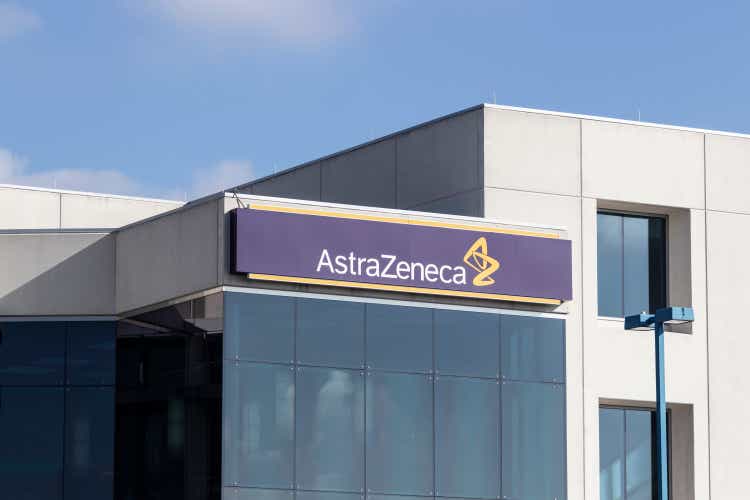AstraZeneca’s cancer pill Tagrisso halves mortality risk in lung cancer

jetcityimage/iStock Editorial via Getty Images
AstraZeneca (NASDAQ:AZN) announced Sunday Phase 3 data to indicate that its oral tyrosine kinase inhibitor Tagrisso reduced the risk of death by 51% in patients with a certain form of non-small cell lung cancer (NSCLC) after tumor removal.
Ahead of a presentation at the ongoing annual meeting of the American Society of Clinical Oncology (ASCO), the British drugmaker cited results as a validation of Tagrisso's potential in lung cancers with mutations in the epidermal growth factor receptor (EGFR).
The ADAURA global study was designed to evaluate Tagrisso, also known as osimertinib, in an adjuvant setting in 682 patients with early-stage EGFR-mutated NSCLC after complete tumor resection.
According to a January data cut, in the overall study population, an estimated 88% of those who received Tagrisso were alive at five years compared to 78% on placebo. There were no new safety concerns, and the incidence of Grade 3 or higher adverse events was 23% and 14% in Tagrisso and placebo arms, respectively.
"These data underscore that adjuvant treatment with osimertinib provides patients with the best chance of long-term survival," remarked Dr. Roy Herbst, Chief of Medical Oncology at Yale Cancer Center and the trial's lead investigator.
In 2020, the FDA approved Tagrisso as an adjuvant therapy for NSCLC patients with EGFR mutations.
In March, ahead of the ASCO event, AstraZeneca previewed data from ADAURA, noting that Tagrisso led to a statistically significant and clinically meaningful improvement in overall survival compared to placebo, meeting a key secondary goal in the study.